
The three levels of the electricity market have not been implemented as planned and EVN is currently still the only intermediary buyer in the market - Photo: H.HIEP
The competitive electricity market has had the participation of many suppliers, but that does not mean that consumers have the right to choose suppliers according to their needs, as Vietnam Electricity Group (EVN) still plays the role of the sole, exclusive intermediary buyer in the wholesale and retail markets.
According to Resolution 70 on ensuring national energy security until 2030, with a vision to 2045, which has just been issued, the Politburo has requested the need to restructure the electricity industry, develop the electricity market in the direction of increasing competitiveness, transparency, efficiency, and synchronization with ensuring energy security; effectively implement the direct electricity purchase and sale mechanism, and at the same time increase the right of choice of electricity customers in accessing and choosing the electricity supplier that suits their needs.
Electricity market development is not substantial?!
The Direct Power Purchase Agreement (DPPA) is considered one of the policies to realize the retail electricity market, helping buyers (production enterprises) to choose electricity suppliers (renewable energy projects) to serve their electricity supply needs.
However, even though it has been issued for nearly a year, no buyer has yet signed an electricity purchase contract with the seller, causing this highly anticipated policy to remain "at a standstill".
Energy expert Ha Dang Son, director of the Center for Energy and Green Growth Research, said that buying electricity directly from renewable energy projects would be cheaper than buying from EVN. This mechanism also creates many buyers and sellers in the market, contributing to promoting market competition.
However, in actual implementation, problems arose related to determining costs, especially the costs and role of EVN - accounting for 37% of electricity sources - determined in the DPPA mechanism, which has not yet created consensus among the parties.
For example, electricity transmission costs, ancillary services and other costs in case of purchasing electricity through EVN's transmission lines or electricity source compensation costs from EVN when renewable energy cannot meet demand.
At a recent meeting to evaluate the implementation of the DPPA mechanism, Director of the Electricity Authority Pham Nguyen Hung also said that the implementation has generated many complaints from localities and businesses.
In particular, with the DPPA mechanism, three groups of issues remain to be resolved, including: the electricity price framework in the DPPA mechanism through the private grid; the cost of clearing the difference in the DPPA mechanism through the national grid, and the certificate of registration for rooftop solar power development.
The story of the "blockage" in implementing the DPPA mechanism when electricity buyers and sellers still cannot meet each other shows the problems arising in the electricity market, when EVN is playing a leading role in the wholesale and retail stages of the market, monopolizing the transmission and distribution stages, and the mechanisms are slow to be resolved.
EVN is still the only buyer and seller in the market.
Meanwhile, according to the Prime Minister 's decision issued in 2013, the competitive electricity market is divided into three levels, including: competitive generation, competitive wholesale and competitive retail. Of which, the competitive generation market officially operated from July 1, 2012, and to date, more than 100 power plants have participated.
With the roadmap decision signed by the Prime Minister in 2013, the competitive electricity generation market will be implemented until 2014, followed by the competitive wholesale market from 2015 - 2016, completed in 2017 and from 2021 the competitive retail electricity market will be implemented for complete implementation in 2023.
Meanwhile, according to the project to design a competitive retail electricity market model approved by the Ministry of Industry and Trade in July 2020, the market will be divided into three phases: by the end of 2021, preparing for the retail electricity market; from 2022 to 2024, allowing customers to buy electricity on the spot market.
This means gradually allowing customers to choose their electricity retailer after 2024, instead of being limited to buying from a single retailer based on geographical area.
The delay in implementing the competitive electricity market, which has been stipulated in the Electricity Law and related documents, especially the retail electricity market, is making the requirement to accelerate marketization and restructuring of the electricity industry unachievable.
request.
Dr. Nguyen Huy Hoach, a member of the Scientific Council of the Vietnam Energy Association, said that up to now, EVN is still the only buyer and seller in the market, while the roadmap for implementing a competitive electricity market has been proposed for more than ten years, but has not yet been implemented in a timely manner according to plan, showing shortcomings in the market.
According to Mr. Hoach, the separation of the National Power System Control Center (A0) from EVN and the establishment of the Electricity System and Market Operation Company (NSMO) under the Ministry of Industry and Trade is considered a step forward to promote a competitive electricity market.
Because the mobilization of electricity sources in the competitive electricity market will no longer depend on subjective factors or interventions related to EVN, such as prioritizing EVN's factories or being linked to the profit and loss calculation of this group.
"However, to implement a competitive wholesale and retail market, much needs to be done, such as perfecting policy mechanisms to properly operate the market, reducing administrative intervention in factors such as electricity prices, separating retail stages and promoting privatization of the electricity sector," said Mr. Hoach.
Still difficult to participate in competitive bidding
According to Mr. Ha Dang Son, over the past 10 years there have been great efforts by the Government and relevant parties to make the electricity market more transparent and competitive.
In fact, there was a period when the private sector participated in the retail electricity sector, but the implementation was not effective and did not ensure professionalism, so the private sector's marketization for retail could not develop as expected.
Meanwhile, with electricity production and supply in the competitive electricity market, although it has been initiated with the participation of many parties, it still does not ensure true competition.
"In reality, besides hydropower and thermal power projects that are mobilized according to market prices, there are still groups that find it very difficult to participate in competitive bidding and are mobilized according to power purchase contracts, meaning there is a commitment to output consumption and selling price, such as BOT, PPP, and private investment projects," said Mr. Son.
It is necessary to ensure the independence of the power transmission grid.

Restructuring the electricity industry so that people can choose their electricity suppliers is a task set out in Resolution 70 - Photo: NAM TRAN
Dr. Nguyen Huy Hoach said that it is possible to consider separating the electricity distribution corporations, which are the electricity corporations of the three regions, to separate the tasks of distribution and retail.
"At that time, the regional power corporations will be completely independent from EVN, acting as buyers of electricity from power sources, including EVN's power sources, and reselling it to customers in need without depending on administrative boundaries.
"Thus, an electricity consumer in Hanoi can buy electricity from a power plant in the Central or Southern regions, meaning they can choose the electricity supplier," Mr. Hoach suggested.
Mr. Tran Anh Thai, former director of A0, said that the implementation of the electricity market has many complicated factors, requiring the wholesale market to be transparent and not have only one buyer, the Electricity Trading Company - currently under EVN. Along with that, EVN needs to separate the retail part from the distribution grid service part of the power corporations.
The State must also have a mechanism to regulate appropriate retail prices taking into account fluctuations in the free wholesale market, as well as a mechanism for retail sales to poor households and remote areas that can be carried out by public utility companies. In particular, it is necessary to ensure the independence of the power transmission grid and that power plants are used without discrimination.
"After being established, NSMO Company, separated from EVN, needs to operate as a joint stock company with shareholders being large energy corporations and transmission and distribution corporations - that is, operating as a non-profit company to ensure its independent and objective role in the market," Mr. Thai affirmed.
Source: https://tuoitre.vn/dan-kho-duoc-chon-nha-cung-cap-dien-evn-van-la-duy-nhat-2025090821471906.htm



![[Photo] Binh Trieu 1 Bridge has been completed, raised by 1.1m, and will open to traffic at the end of November.](https://vphoto.vietnam.vn/thumb/1200x675/vietnam/resource/IMAGE/2025/10/2/a6549e2a3b5848a1ba76a1ded6141fae)




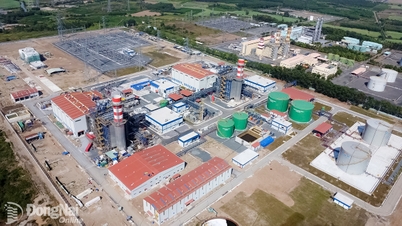













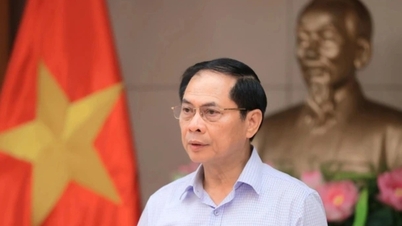
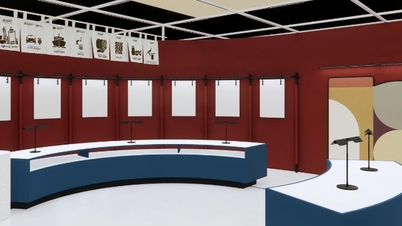
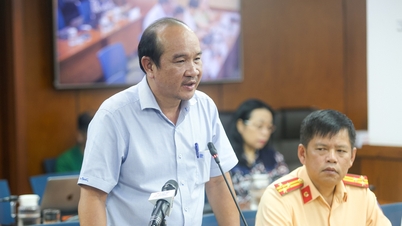
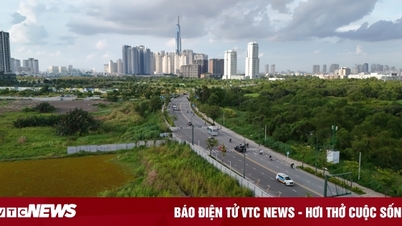






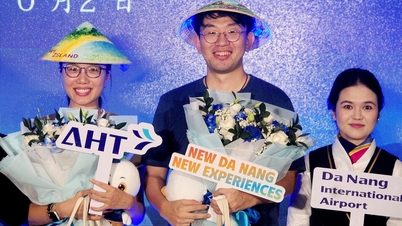

















































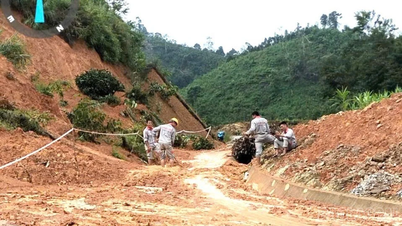
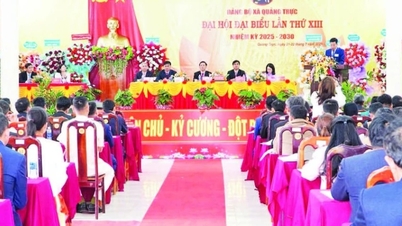


















Comment (0)